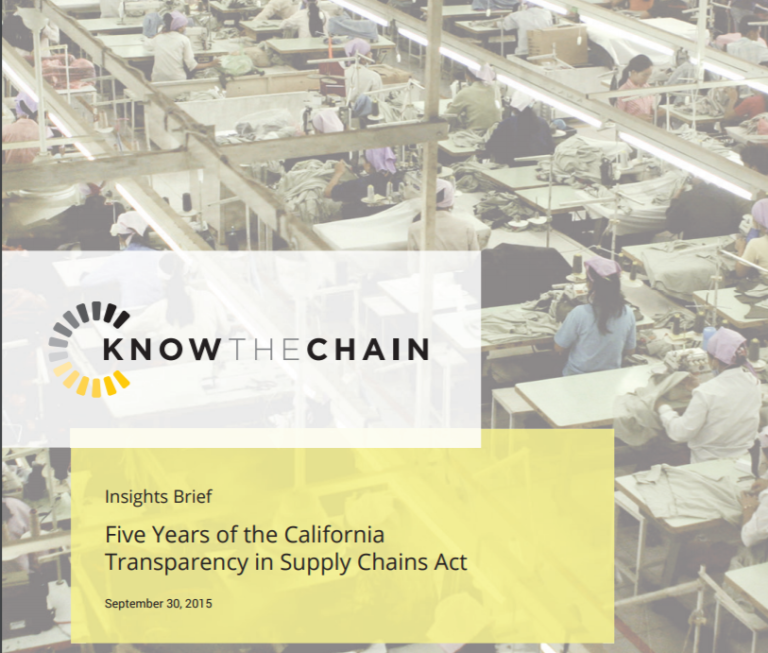In September 2010, the California Transparency in Supply Chains Act (SB 657) was signed into law requiring retail sellers and manufacturers that do business in California, and have over $100 million in gross annual receipts, to publically disclose their efforts to eradicate slavery and human trafficking from their supply chains.
From 2013 to 2015, KnowTheChain sourced information about corporate compliance with SB-657. Five years after SB 657’s signing, KnowTheChain developed an insights brief with key lessons and recommendations from SB 657’s introduction and enactment based on its experience monitoring the law. The findings in this brief are based on a sample set of 500 companies that KnowTheChain identified as impacted by SB 657.

